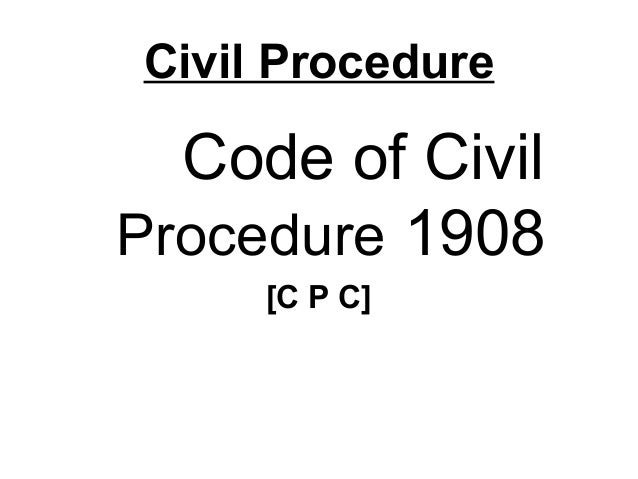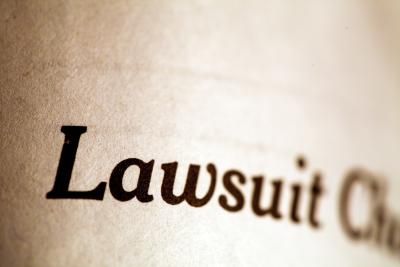
What is Res-Judicata?
Res-judicata:==========================
The doctrine of Res-judicata is enunciated in section (11) of C.P.C is in the following words:
According to section (11), "No Court shall try any suit or issue in which the matter' directly and substantially has been directly and substantially in issue in a former suit between the same parties, or between parties under whom they or any of them claim, litigating under the same title, in a Court competent to try such subsequent suit or the suit in which such issue has been subsequently raised, and has been heard and finally decided by such Court."
Res-judicata Meaning:
===============================
Res-judicata technically means that a matter in issue which has already been tried by competent Court, then trial between the same parties in-respect of the same matter shall not be allowed. Res-judicata is very important doctrine of C.P.C, it emphasis that a subject matter of the suit which has already been decided, is deemed to be decided forever, and can't be reopened by the same parties. The rule of Res-judicata is based upon the principle that no person should be vexed twice for the same cause of action, and the interest of the State behind this principle is that, there should be an end to litigation.
Object of Res-judicata
================================
The object of Res-judicata is to prevent a question which has already been decided to be re-agitated. A question finally decided at one stage of a proceeding cannot be re-agitated between the same parties or their representatives at a subsequent stage.
Kinds of Res-judicata:
==================================
There are two kinds of Res-judicata namely; Actual Res-judicata and Constructive Res-judicata.
Actual Res-judicata:
=================================
It means a matter actually resolved by Court, between the parties in earlier suit cannot be reopened through subsequent suit. In-other words an issue has been alleged by one party and either denied or admitted, (expressly or impliedly) by other party in earlier suit, second suit in respect of the same matter can not be filed, and if any is filed, the same would be hit by actual Res-judicata.
Constructive Res-judicata:
==================================
It means a matter which might and ought to have been made ground of claim or defense in a former suit, but a party ignores it, then that issue shall be deemed to have been a matter directly and substantially in issue in such suit. In other words if a party had an opportunity that he ought to have taken a plea (as a plaintiff or defendant) if he fails to do so, and the matter is decided, the decision will operate as Res-judicata in-respect of all issues, which were taken, and which ought and might have taken/ and second suit would not lie for such issue.
Essential conditions of res-judicata:
=====================================
For applicability of Res-judicata the following conditions must be present:
1. A previous suit in which the matter in issue directly and substantially should have been decided.
2. A competent Court of Civil jurisdiction should have decided it.
3. It should have been decided on merits and final decision should have been made after hearing.
4. It should contain directly and substantially same matter in issue.
5. It should have been contested between the same parties or their legal representatives, such parties are indulging litigation under the same title, with respect to the same cause of action. If these conditions are fulfilled then subsequently/further instituted suit shall be liable to be dismissed by application of doctrine of Res-judicata.
What is Res-Subjudice?
Res-subjudice:
==========================
The doctrine of Res-subjudice is contained in section (10) of C.P.C in the following words: According to section (10), No
Court shall proceed with the trial of any suit in which the matter in issue is also directly and substantially in issue in a
previously instituted suit between the same parties, or between parties under whom they or any of them claim litigating
under the same title where such suit is pending in the same or any other Court in Pakistan having jurisdiction to grant
the relief claimed, or in any Court beyond the limits of Pakistan established or continued by the Central Government and
having like jurisdiction, or before the Supreme Court.
Res-subjudice Meaning:
=========================
Res-subjudice technically means that a matter in issue, which is already under the judicial scrutiny, then other
proceeding of trial in-respect of same matter in issue shall not be allowed.
Object of Res-subjudice:
==========================
The object of Res-subjudice is to prevent Courts of concurrent jurisdiction from trying two parallel suits, in respect of
the same matter simultaneously.
Essential Conditions of Res-subjudice:
=================================
For applicability of Res-subjudice the following conditions must be present:
1. The matter in issue subsequent suit must be the same, which is directly and substantially in issue in previously
instituted suit.
2. The previously instituted suit must be pending in the same Court or in any other Court in Pakistan, or in any Court
beyond Pakistan established with the authority of the Federal Government.
3. The previously instituted suit must be pending in a competent Court of civil jurisdiction.
4. The parties in both suits must be the same. If these conditions are fulfilled the subsequently further instituted suit
shall be stayed by applying Res-subjudice.
DIFFERENCE BETWEEN RES-JUDICATE AND RES-SUBJUDICE ?
Differences:
1. The doctrine of Res-judicata is contained in section (11) of C.P.C, which provides when and how it can apply, while
the doctrine of Res-subjudice is contained in section (10) of C.P.C, which provides when and how it can apply.
2. In Res-judicata the Court shall not try at all a case, which has previously tried, while in Res-subjudice the Court shall
not proceed with a case, in-respect of which a suit is already pending.
3. Res-judicata deals with cases, which have already been decided by a Court of competent jurisdiction, but Res-
subjudice deals with cases which are pending before the Court of competent jurisdiction.
4. Res-judicata prohibits second trial of the same dispute between same parties, while Res-subjudice prohibits
proceedings of two parallel suits between same parties.
Conclusion:
====================
So it can be concluded that by applicability of Res- judicata the Court shall not try a suit, which has already been tried, on the other side by applicability of Res-subjudice the Court shall not proceed-with a suit which is already pending
before the Court of competent jurisdiction. The main spirit behind these two principles isthat no person should be call in question twice for the same cause of action.

